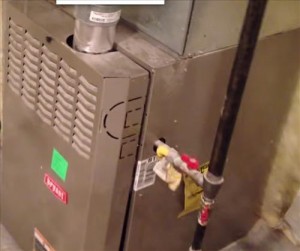Should you repair or replace your furnace?

This is a question often heard in the HVAC world and is never a simple one-answer-fits-all question. There are many things to consider and take into account when looking to repair or replace a furnace, including the age of the unit, problem, and cost. Lets break down each of these things and see what is the best option is for you.
How old is the furnace?
How old the furnace is important to consider but not a complete factor in replacement. Some homes may not have used the furnace much for a number of reasons such as it was a vacation home or on the market for a number of years, while another home may have been occupied constantly using the furnace through every winter.
How cold is the winter were you live can also wear out a furnace quicker than a more moderate climate. A furnace in Alaska will be used much more than one in California. Also if you live in a moderate climate taking a chance that a furnace will break down in the winter is much more acceptable risk than a harsher climate.
What is the problem with the furnace?
Another question that goes hand-in-hand with any problem a furnace has, is the condition it is in, and if the problem is fixed will something else soon go bad? Many things can simply be replaced in a old furnace. A at home do-it-yourself type person can do many of the fixes such as replacing a blower motor or RUN capacitor.
A close inspection of the furnace should be done mainly to check the heat exchanger and if it has any cracks. Heat exchangers are made to last 10-20 years of constant use so if the heat exchanger doesn’t pass a close inspection then it is a good idea to replace the entire unit.
The heat exchanger keeps the air that flows through a home separate from the poisons gas that burns to put out heat. Any cracks or breaks in the seal of it can be hazardous for any residents.
The heat exchanger can be replaced if this is the only option but its condition can give a person inspecting the furnace the overall health of a unit.
For problems with a blower motor, start run capacitor, contactors, igniter and so on replacing the part is often a simple choice. Many of these things can be done by a home owner without ever calling a repair company and there are articles here on this site for anyone wanting to know how to fix their own furnace.
What will the cost be?
You can get quotes from heating and cooling companies in your area that will often give you a free quote to replace or fix the furnace. But the fact comes down to what your budget is and no one knows your budget like you do. It also comes down to common sense if you get quotes from three different heating and cooling companies and they all say the furnace is old and possibly dangerous than obviously it should be replaced.
Unless you have a reason to trust a HVAC company it never hurts to get a second opinion.
Conclusion
Repairing any major appliance in a home is never a simple thing and can often be a pain in the wallet. It really comes down to judging your options and making a rational decision on whether to fix it or repair it. Getting cost estimates is always a good start. Going though and thoroughly inspecting the furnace yourself is always a good idea also. Give yourself some knowledge about your furnace so that when a HVAC guy does come out you can make a more informed decision then just blindly trusting their word.